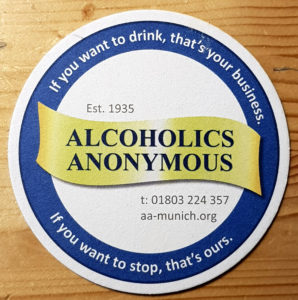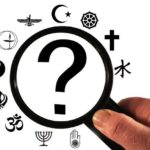The one thing that Karl Marx was correct about was his proclamation declaring religion the opiate of the masses. Unfortunately, he did not take this idea far enough, as it seems the reverse is also true. Opiates, along with all other drugs, are a religion for the masses.
Human beings have always sought to alter their consciousness.
This can be done in two fundamental ways: either by altering your behavior, with the subsequent chemical changes that come about because of it or by taking drugs. Of these, it is clear that only alterations in behavior are socially acceptable, although in many ways the results may be the same. Major alterations in behavior as promoted by religion can be seen in penance, praying, fasting and sacrifice, among others, while they decry the use of drugs.
 Looking at the meaning behind Marx’s statement, religion is seen for what it is a controlling force used to hold people down while providing a false sense of hope and security with life. Instead of being a catalyst for change, religion is actually a pretext to control. Although used as a means to cope with horrible conditions of reality, all it truly does is offer an easy escape and means for avoidance. If life is avoided, it can never be changed, thus leading the religious in a circular logic where life is horrible, but can never be improved upon because it is not dealt with.
Looking at the meaning behind Marx’s statement, religion is seen for what it is a controlling force used to hold people down while providing a false sense of hope and security with life. Instead of being a catalyst for change, religion is actually a pretext to control. Although used as a means to cope with horrible conditions of reality, all it truly does is offer an easy escape and means for avoidance. If life is avoided, it can never be changed, thus leading the religious in a circular logic where life is horrible, but can never be improved upon because it is not dealt with.
How is this any different from the use of drugs?
Drugs are used for many reasons, but predominantly the foundation these rest upon is a desire to alter reality, and thus avoid dealing with it. Many also see in them a false hope that they actually can change reality. Although often viewed as a catalyst for change, drugs are the exact opposite. While they may temporarily change the perception of reality, they can never change reality itself. Drugs, just like religion, provide a false sense of hope, security, and change, none of which can ever be attained as long as they are avoided.
Throughout history, drugs and religion have been inexplicably intertwined, with the choice of drug determining whether the religion is socially acceptable or not. One of the most powerful religions has been seen in the Roman Catholic Church. In their ceremonies, wine is an integral part as it represents the blood, the life itself, of Jesus. While that is more than accepted, when the colonists arrived in America to find tribes of Indians using peyote in their ceremonies, they were seen as repulsive and their faith socially unacceptable. As both of these practices continue to this day, the majority still see wine to be acceptable and peyote not.
Although it is clear that drugs and religion are related and similar in many respects, it still remains to be seen if drug use can be considered a religion. If this is true, then what are its users except another religion persecuted for its beliefs?
In the disease model, the fundamental underlying belief is that the individual has no control over their drug use, that it is somehow biological. The only problem here is that there is no real scientific evidence to prove this. Historically, when people could not understand and explain actions, they turned to religion for the answer. Since nothing based on fact can be asserted, then it must be spiritual forces at work controlling the individual. Therefore, drug use/addiction must, by default, be religious in nature, and consequently, a religious activity.
For those who believe in the disease model then, drug use must be religious.
To further reinforce this, the most often advocated treatment is religious. The overwhelming treatment has been total abstinence, most clearly seen through Alcoholics Anonymous (AA). There can be no doubt that AA is a religious organization, with the premise itself paralleling the Christian belief in redemption. In this belief, the first thing a person must do is to come to terms with being a sinner. In order to be saved, they have to renounce how they have lived and accept Jesus Christ into their life.
 AA holds that the person must come to terms with being an alcoholic. In order to be saved, they have to renounce how they have lived and accept some form of a god (and abstinence) into their life.
AA holds that the person must come to terms with being an alcoholic. In order to be saved, they have to renounce how they have lived and accept some form of a god (and abstinence) into their life.
For those who reject the disease model, does this alter drug use from a religious activity to something else?
The simple answer is no. In the free-choice model, the fundamental underlying belief is that it is the individual who has control and makes the choice of whether to use drugs or not. This then will not allow drug use to be religious in nature as seen in the disease model. However, as it is the individual choosing to use the drug, the question of why it is used must be asked.
Coping Mechanism
Generally, drugs are used as a coping mechanism. Drugs, then, simply replace religion as the means to escape an unpleasant reality and avoid dealing with the reality of life. Both offer hope while not actually changing reality itself. Added to that is the fact that drug use normally occurs in a ritualistic manner. Drug users will create a pattern of drug use that is often followed by the letter. It is simply understood as to how things are.
An example of this can easily be seen in college students. A great number of them have set nights, perhaps Fridays, where they will drink to the point where reality is highly distorted. This does not simply happen; there is a ritual to it. For some, it revolves around the pretext of going out to a club. Hours are spent beforehand getting prepared to go out, the perfect makeup and dress seen as necessary. Once there, drinking begins and becomes a major part of the evening. In many cases, it is the center of the night, as the alcohol takes on the worshiped quality of a god. It makes one feel good about oneself and the world around them. How is this any different from going to church?
 For many, Sunday morning is a time to worship. They plan accordingly Saturday night so that they can get up early in order to prepare to go to church. The right dress and frame of mind are seen to be necessary. Once there, worship begins and is the center of the experience. It makes one feel good about oneself and the world around them. The set time and place is fundamental to ritualistic worship. It is always there and unchanging, thus one knows it can be counted on to be there.
For many, Sunday morning is a time to worship. They plan accordingly Saturday night so that they can get up early in order to prepare to go to church. The right dress and frame of mind are seen to be necessary. Once there, worship begins and is the center of the experience. It makes one feel good about oneself and the world around them. The set time and place is fundamental to ritualistic worship. It is always there and unchanging, thus one knows it can be counted on to be there.
It is interesting to note the studies undertaken which claim the suppression of a covert practice of using the mushroom Amanita muscaria ceremonially for spiritual purposes, most famously put forth in the book The Sacred Mushroom and the Cross, by John Allegro. He says that all references to Jesus are simply masked references to the mushroom. One does not need to believe this in order to see its importance, however. Even if he had written it as a novel, it has great implications. A modern Christian looking for hope and an escape from reality turns to Jesus. Likewise, a modern drug user looking for hope and an escape from reality turns to Amanita muscaria, (or LSD, pot, alcohol, etc.). There is no important difference.
How drug use or addiction could be seen as a religious activity
From the evidence, it is rather easy to see how drug use/addiction could be seen as a religious activity. This is not to say, however, that other activities normally separate from religion could be seen in this light also. The main facet to note is whether or not the activity is performed “religiously.” In this manner, shopping, watching television, and a myriad of other activities could be deemed a religious activity. Drugs are included in this but also are in a category wholly their own. The purpose behind them is to change oneself. They are given qualities of a god, revered for their purported ability to do good. When the notion comes into play that drugs are done “recreationally,” then what else can it be but a religious activity? They serve the same purpose and quite possibly achieve the same results.






